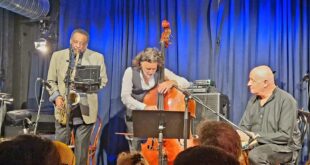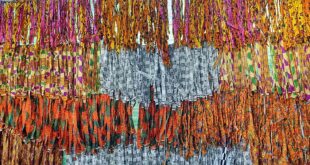As the coronavirus pandemic spreads across the world, causing mass disruptions to daily life – rattling markets, suspending travel plans, cancelling sports and music events, the disease is instigating a reappraisal of life as we know it. Our contributing editor and medical doctor at the Berlin Charité hospital, Michael Nnaji, writes on important lessons to be drawn from the crisis.
In the wake of the Coronavirus (COVID-19) pandemic that is raging around the world and leaving thousands dead in its wake, some home truths with hitherto hidden meanings are becoming clearer to me.
In a rather convoluted press conference held by Donald Rumsfeld to justify his country‘s military invasion of Iraq at the height of the Gulf War, the then US defence minister ostensibly rambled about “known knowns and unknown knowns”. Thanks to the coronavirus saga one of the unknown knowns has acutely made its presence felt in our world.
And how! Mysteriously a novel deadly virus has originated from Wuhan, China, and no thanks to a global system that is as intertwined as ever, is spreading its tentacles to every nook and cranny of the earth. As if you don’t know, the “known known” here is that this was a disaster waiting to happen. How could we not see this coming? To be sure, the spread of the virus has, in no small measure, been facilitated by navel-gazing, an unprecedented capitalistic mindset and protectionism on the part of governments. And now the chicken is coming home to roost.

In an insightful article written by Steven Erlanger and published in the New York Times a few days ago, he sketches the decimation of European public life occasioned by the pandemic, as public life has ground to a halt, with schools, kindergartens, restaurants, bars and cafes closed. Europe’s haphazard efforts to stem the crisis (with several country unilaterally closing their borders) is mocked by Erlanger, pointing out that “the enemy is already within”. All of a sudden friends, families and colleagues are wary of congregating for fear of contracting the virus. Countless public events have been shelved or completely cancelled. Social media and telephony are now the preferred methods for communication.
The author also notes how European leaders watched with nonchalance as the disease first hit China and ignored the Chinese authorities’ baleful handling of events by suppressing and even doctoring information among other sundry calamities. Pathetically, the whistle-blowing doctor who first publicly drew attention to the novel viral infection with a high mortality rate, died of the disease.
It did not, however, occur to the onlooking, self-centred citizens of the world that our rather fatuous lifestyles have been enabled by the myriad low-paid Chinese workers slugging it out under disastrous conditions, forgoing unemployment benefits, paid sick leaves, etc, etc. In this context, the term “Global Village” is no longer clichéd but has rather taken on a grave import. Whereas previous pandemics like the 1919 Spanish Flu, the 1720 babonic plague, the 1820 cholera outbreak and the SARS and Ebola crises of recent memory were, in the main, restricted to the regions where they broke out, the corona virus knows no boundaries, acutely reminding us of our common humanity.
Game-changer?
The virus is obviously no respecter of persons, titles or pedigree (at least a leader of one industrialised nation had tested positive for the virus at the time of writing this article). John Donne’s aphorism that we shouldn’t ask for whom the bell tolls, “it tolls for thee” has never rung truer.
The world over, healthcare systems are creaking at the seams as more and more cases are reported everyday and the death toll rises exponentially.
If there is any silver lining to this sorry state of affairs though, it is that it is forcing us to rethink our common coexistence as humans and forge a common brotherhood. That it has required a microscopic pathogen to force this change is, indeed, ironic.
The old African adage that “it was only when the wind blows that we can catch a view of the fowl’s rump” has never felt more evident. The ongoing corona crisis has helped expose some of the world‘s fault-lines that have been accentuated and exacerbated by greed and cut-throat capitalism.
Now is, indeed, the time to rid ourselves of the plethora of superficial and dubious accoutrements we have indulged in in the Modern Age.

Suddenly, we are beginning to see the superfluousness of certain “professions” set up to fleece the unsuspecting populace. As someone who has been rather dubious of the necessity of “Financial Experts”, it is somehow gratifying to see this sector being put in its place, as it were.
Earlier last week stocks around the world came crashing down; even the lowering of interest rates by the US Federal Reserve (America’s central bank) has had only a salutary, if any, effect on the financial landscape. This ordinate thirst and hunger for unsustainable growth has been exposed for what it is: foolhardiness.
Suddenly, excessive travelling is hazardous, pleas for a more friendly outlook to our environment having fallen on deaf ears for decades; now, people are restricting their mobility without the need for sermonization. Alexander von Humboldt, who warned about “humanity’s rape of the planet” must be wearing a smug and wry smile from his grave now.
Suddenly people are only buying what they NEED and not WANT as people panic-buy and hoard essentials (the section of my local supermarket that harbours sanitizers and grocery now has the trappings of a raided store these days). Supply lines from the giant warehouses of China and Bangladesh have been cut off in panicked efforts to curb the spread of the virus.
The coronavirus is turning out to be an unprecedented leveller. In the media terms like “social distancing” and “self-isolation” have become buzzwords. Even the British Government in a stupendous and rash public declaration recommending that people carry on with business as usual (ostensibly to engender “herd immunity”, i.e. infected individuals acquiring immunity following infection) was disabused of this notion in explosive fashion by scientists labelling the recommendation reckless.
An analogy from clinical neurology might help shed some light on the current malaise. Here, it is often highlighted that loss of function enabled us to understand circumscribed brain function (in the event of a stroke, for instance). Depending on the area that is damaged, the corresponding functionality also suffers damage. A damage to the speech and motor centre, for example, leads to speech impediment and paralysis respectively.
Thankfully, through rehabilitation, a certain amount of functional recovery can be achieved. Extrapolated to our current situation, our global system has, indeed, taken some beating even tantamount to a multi-organ failure as whole countries find themselves in a lock-down.
On the bright side, the “winners” (I hesistate to use this term) of the crisis are turning out to be those professional undertakings which we have known to be essential to our existence, but which have for long been taken for granted, and in some cases, undermined by public policy and treated with contempt by the general public – to wit: healthcare providers, teachers, people working in the public works & steel and industry and power supply systems; road cleaners and even menial hands in workplaces (or what is left of them).
Even journalists and writers as well as academics who have been viewed with suspicion since time immemorial, are enjoying a boon as they take on the all-important duty of enlightening a populace in panic mode. The clergy, notwithstanding the apparent ban of public gatherings, will also have a key role to play in engaging their respective laity and pointing a way forward. From an African perspective, it basically means bad news for religious charlatans as hitherto gullible worshippers begin to see them for what they are and plough back scarce resources into the upkeep of their own respective families.
Regrettably, Africa, with its manifest lack of resilient healthcare systems and deficient pandemic preparedness, may bear the brunt of the crisis. In a twist of irony African leaders, who have somehow contrived over in failing to establish standard healthcare systems are barred from even travelling abroad for medical care as more and more nations restrict visits to their countries!
Suddenly, the artificial skyrocketing of property prices makes no economical sense all, exposing the unsustainability of the whole charade which has denied millions affordable homes in recent times. It is now only a matter of time before this hideous bubble bursts.
Unfortunately, several “honest professions” have also been hit hard by the crisis, especially the independents among them who have been honest taxpayers and citizens who have helped create millions of jobs in the private sector. Now they are having to lay off workers in a bid to make ends meet and somehow survive the crisis. In this regard, special mention must go to the backroom and other staff of restaurants, freelance artists and artisans as well theatre and cinema workers. Most, indeed, work under less-than savoury conditions and live below the poverty line. What happens to them and their families if this crisis goes on is anybody’s guess.
My fervent wish is that the pandemic can be quickly arrested and that the world population comes through this with minimal collateral damage in the form of low mortality rates. Let us indeed hope that this will send a message to humankind and lay the foundation for a more just, compassionate and charitable dealing with one another, rather than the ingenuous, highfalutin, lip-serving rhetoric that is routinely dished out at international conferences.
To go back to the clinical neurology analogy, it would be safe to say that, despite the near multi-organ failure our global system is currently witnessing, there is, indeed, a glimmer of hope. There will still be some scope for rehabilitation as we are forced to go back to the drawing board and begin to ask ourselves questions about how we got into this mess in the first place. It will require honesty and a lot of good faith. Business as usual won’t just do any longer. To forestall, in the words of James Baldwin, “the fire next time”, there will be need for a honest concerted efforts based on compassion, a sense of brotherhood and public spiritedness.
Nnaji, a biochemist and medical doctor, works at Berlin’s Charite Universitätsmedizin, Germany.
 THE AFRICAN COURIER. Reporting Africa and its Diaspora! The African Courier is an international magazine published in Germany to report on Africa and the Diaspora African experience. The first issue of the bimonthly magazine appeared on the newsstands on 15 February 1998. The African Courier is a communication forum for European-African political, economic and cultural exchanges, and a voice for Africa in Europe.
THE AFRICAN COURIER. Reporting Africa and its Diaspora! The African Courier is an international magazine published in Germany to report on Africa and the Diaspora African experience. The first issue of the bimonthly magazine appeared on the newsstands on 15 February 1998. The African Courier is a communication forum for European-African political, economic and cultural exchanges, and a voice for Africa in Europe.















